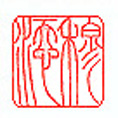— go back one page
— go back to list of extracts
— skip to next extract

‘This is wonderful,’ I said ‘—a paradise, in the literal sense of the term. You make a garden the way a sculptor puts life into stone.’ Hermippē coloured slightly, with a smile of pleasure.
‘What is the literal sense of “paradise”?’ asked Philodemus.
‘It’s Persian for “walled garden”,’ I replied, looking around. Rare plants from all the known world were flourishing. I recognized a good many. Some were there for their medicinal virtues, others for the beauty of their foliage or flowers, others for curiosity, others for the good they brought to the earth. They had been chosen so that the garden would give pleasure at different times of the year. I saw that Hermippē tended the plants in her garden with the same attention she obviously gave to human guests in her house.
In the dry corner, Hermippē showed us a flowering cactus from Egypt.
‘This is a very unusual plant,’ she said. ‘The Egyptian temple administrators say that it is only found within their temple grounds. It is called the “inner eye” — here Hermippē pointed to the partly veiled centre of the flower which resembled an eye — ‘and is supposed to be protected by their monkey-god. But the Egyptian gardener from whom I obtained it told me that it would only flourish, and would only flower, near schist.’ And she indicated a low schist wall that had been placed around it. I bent down and inspected the flower. It was odourless. Soft yellow and sombre red, with the pupil of the eye-like shape being a small and irregular blue circle. I stood up again.
(3/6)